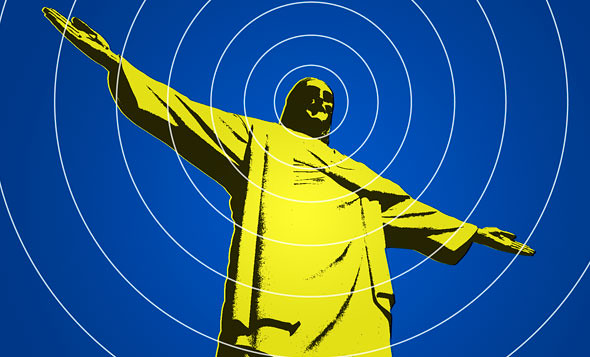
“Apart from the New Testament writings and later writings dependent on these, our sources of information about the life and teaching of Jesus are scanty and problematic” – F.F. Bruce, New Testament History.
“The only definite account of his life and teachings is contained in the four Gospels for the New Testament, Matthew, Mark, Luke and John. All other historical records of the time are silent about him. The brief mentions of Jesus in the writings of Josephus, Tacitus and Suetonius have been generally regarded as not genuine and as Christian interpolations; in Jewish writings there is no report about Jesus that has historical value. Some scholars have even gone as far as to hold that the entire Jesus story is a myth… ” – The Universal Jewish Encyclopedia
The various problems with numerous discrepancies and disputable dates of the canonical gospels suggest that these texts do not constitute entirely helpful or reliable biographies of Jesus Christ. It would thus be useful to turn our attention elsewhere for additional clues as to who Jesus was. However, when we go looking for material outside of the New Testament that might validate the events described there, we come up empty-handed, both textually and archaeologically.
In other words, there is no contemporaneous evidence outside of the New Testament to attest to Christ’s advent and ministry – or even his existence.
The silence is singularly outstanding, in consideration of the repeated assertions in the gospels that Christ was famed far and wide, causing a fracas with the local and imperial authorities, and, upon his death, creating astonishing and awesome miracles and wonders the world had never seen before, including not only an earthquake and the darkening of the sun and moon, but also dead people rising from their graves and visiting people in town! [Matthew 27:50-53] – Can you say “night of the living dead”!?
These “great crowds” and “multitudes”, along with Jesus’s fame, are repeatedly referred to in the gospels, including in the following:
- Matthew 4:23-45, 5:1, 8:1, 8:18, 9:8, 9:31, 9:33, 9:36, 11:7, 12:15, 13:2, 14:1, 14:13, 14:22, 15:30, 19:2, 21:9, 26:55
- Mark 1:28, 10:1…etc
- Luke 4:14, 4:37, 5:15, 14:25…etc
- 1 Corinthians 15:3-7
One would think that if all these things happened, someone somewhere would have written about them or otherwise recorded them for prosperity. But, inspecting the literary, historical and archaeological record of the time produces nothing. The dearth of evidence is not for want of suitable reporters, as during the first century the following historians and writers depicted life in and around the Mediterranean, including in some of the very places that Jesus and his disciples purportedly move about:
| Aulus Perseus (60 CE) Columella (1st cent. CE) Dio Chrysostom (c. 40 – 112 CE) Justus of Tiberius (c. 80 CE) Livy (59 BCE – 17 CE) Lucanus (fl. 63 CE) Lucius Florus (1st – 2nd cent. CE) Petronius (d. 66 CE) Phaedrus (c. 15 BCE – 50 CE) Philo Judaeus (20 BCE – 50 CE) Phlegon (1st cent. CE) Pliny the Elder (23 – 69 CE) | Plutarch (c. 46 – 119 CE) Pomponius Mela (40 CE) Rufus Curtius (1st cent. CE) Quintilian (c. 35 – 100 CE) Quintus Curtius (1st cent. CE) Seneca (1 BCE – 65 CE) Silius Italicus (c. 25 – 101 CE) Statius Caelicius (1st cent. CE) Theon of Smyrna (c. 70 – 135 CE) Valerius Flaccus (1st cent. CE) Valerius Maximus (fl. c. 20 CE) |
Oddly enough, not one of these writers recorded any of the amazing and earth-shaking events reported in the gospels, even though this period was one of the best documented in history and although some of these authors lived or traveled in the same small area in which the gospel story was set. Neither Jesus nor his disciples are mentioned by any of them – not a word about Christ, Christianity or Christians!
Thanks for reading,
Continue reading:
Jesus Outside the Bible: Part 2 – Flavius Josephus
Jesus Outside the Bible: Part 3 – Pliny, Tacitus and Suetonius
Notes:
Excerpted from “Who Was Jesus – Fingerprints of the Christ” by D.M. Murdock, Stellar House Publishing, 2007

Leave a Reply to Allan FolsomCancel reply